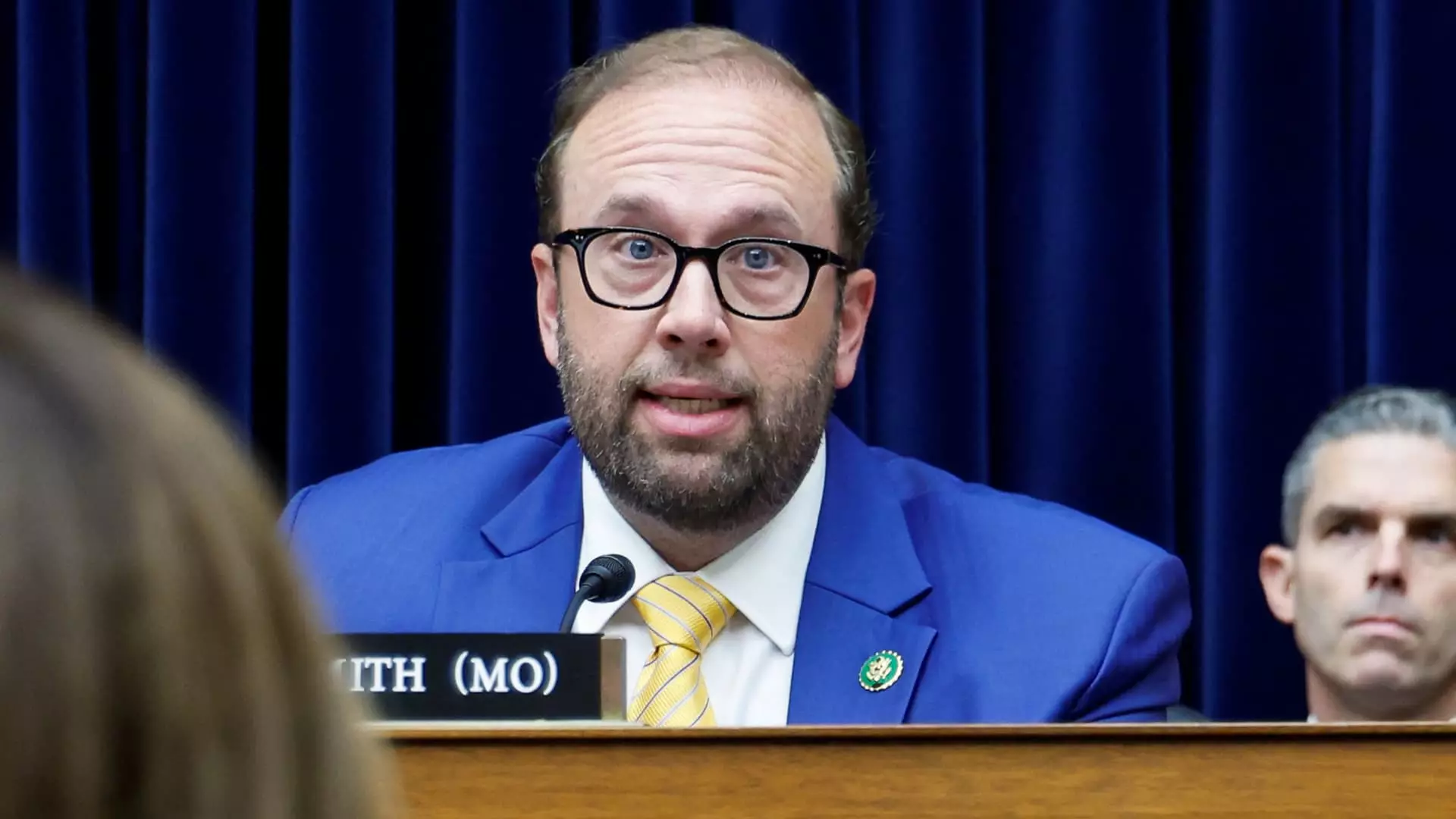In a political landscape marked by deepening economic divides, the recent advancement of House Republicans’ tax breaks, ostensibly designed to invigorate the economy, unveils a troubling dichotomy—a proposal that caters primarily to affluent taxpayers while maintaining the facade of financial alleviation for the middle class. The House Ways and Means Committee, in an all-too-familiar party-line vote, passed its segment of President Donald Trump’s sweeping tax initiative, emphasizing a belief that these changes will fundamentally bolster fiscal growth. Yet, closer scrutiny reveals that this legislation could exacerbate inequalities and disadvantage those already struggling.
At the core of this tax reform debate is the SALT deduction—something that has morphed from a lifeline for high-tax state residents into a bargaining chip within a broader agenda that prioritizes the wealthy. While raising the SALT cap to $30,000 for individuals earning up to $400,000 might glance at inclusivity, it fails to consider the broader implications of such a significantly regressive taxation framework. By doing so, the legislation risks ignoring the principle of equitable tax responsibility, ensuring that the rich can continue to evade their fair share.
A Threat to Essential Services
As these tax breaks come to fruition, it’s crucial to acknowledge the collateral damage—namely, the critical public services that rely on these revenues. California, New York, and Illinois, among others, rely heavily on state budgets funded by equitable tax structures. The truncation of state revenues due to a low SALT cap directly threatens education, infrastructure, and health services that are vital to their residents.
In a country where education inequality is already a festering wound, these proposed tax changes risk deepening that chasm even further. Public schooling depends on state and local funding, which will further erode under a system that favors high-net-worth individuals. The narrative that tax cuts for the wealthy will inevitably trickle down to the average American is a dangerously outdated myth—one that only serves to perpetuate cycles of inequality.
The Unintended Consequences of Tax Policy
Interestingly enough, the House Ways and Means Committee bill introduces yet another curious facet—an additional $4,000 deduction for older Americans, which sounds reasonable on the surface but is, in reality, a grand illusion that fails to rectify taxation on Social Security income. Critics argue that while this deduction comes at a steep cost of $90 billion over the next decade, its impact on actual beneficiaries may be minimal. In a sense, this maneuver seems engineered to satiate electors while allowing Congress to maintain the status quo of tax bliss for the wealthy.
Moreover, the legislative attributes targeting child tax credits can easily be misinterpreted as a genuine concern for impoverished children lived realities. With many low-income families unable to claim the full $2,000 benefit, the bill as it stands neglects 17 million children excluded from this vital aid. This is not merely a hole in the safety net; it is a glaring indicator of a system designed to benefit the few while leaving the majority grappling with economic despair.
Reinforcing the Class Divide
The House proposal does not halt at these dubious deductions and tax breaks. Extensions of the maximum child tax credit and the potential inclusion of no taxes on tips will undoubtedly favor certain demographic groups while neglecting others. It reinforces a class divide under the false pretense of stimulating economic prosperity. Many communities across the nation are already reeling from the impacts of wealth concentration, and this plan only promises to widen the gap.
Rather than paving the way to an equitable economic future, the Trump-esque vision for tax reform reveals a profound misalignment with the needs of the American populace. Tax policy should work to shield vulnerable populations from economic dislocation, not offer yet another windfall to the affluent. The urgency of this matter cannot be overstated—Congress must reconsider the impacts of tax reform that perpetuates inequality rather than dismantles it. Only then can we aspire for a democracy where everyone has a stake in the growth narrative, not just the privileged few.

